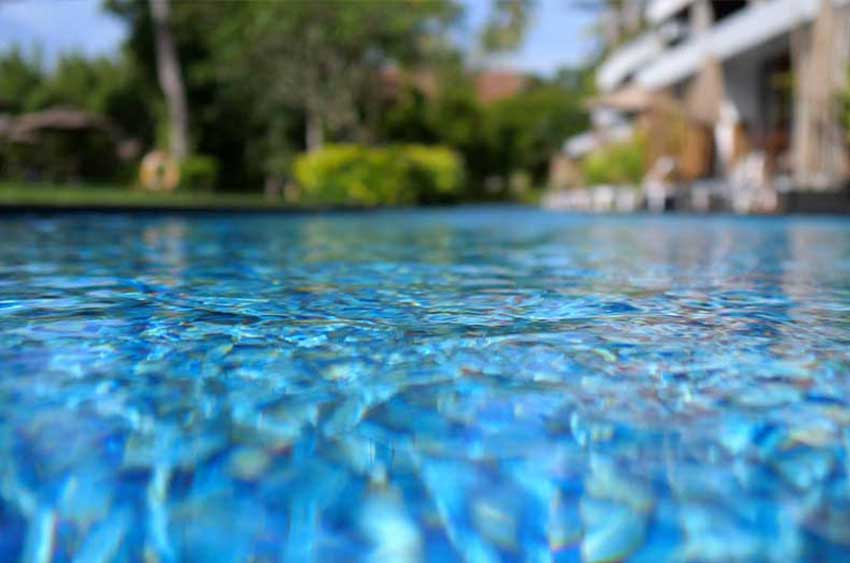The debate is at least as ancient as Rome, where the first heated swimming pool was built for Gaius Maecenas—an adviser to Emperor Augustus Caesar—sometime between 38 and 8 BC. The question under debate: Does a swimming pool add value to your house? (Or palazzo, as the case may be in Rome.)
The answer, of course, is…. yes, no, or maybe.
Why the hedge? As the first commandment of property marketing states unequivocally, “all real estate is local,” which is to say that every market is subject to its own unique set of circumstances governing local home values. In many places a pool adds great value to a property—both real and perceived. In other places, not so much.
In Maine, northern Wisconsin or the Upper Peninsula of Michigan, for example, a swimming pool could easily be regarded as an unnecessary extravagance—or worse, a nuisance—given the short cool summers and long harsh winters for which these areas are well known; and against which swimming pools must be routinely covered and protected. As prestigious and enjoyable as having a swimming pool can be, they simply aren’t a must-have amenity for most buyers in these colder climates, except perhaps in the wealthier neighborhoods. Even there, you wouldn’t be judged harshly for not having a pool.
 In Southwest Florida—on the other hand—with its famously long, hot, and humid summers, a
backyard swimming pool is hardly an extravagance. Indeed, it is viewed by many as a
instrument of survival! And your home best have one or it could take longer to sell in many
Florida neighborhoods. People move to Florida wanting a pool, perhaps for the first time in
their lives, and they realize there’s a premium attached to the dream that they are more than
willing to pay.
In Southwest Florida—on the other hand—with its famously long, hot, and humid summers, a
backyard swimming pool is hardly an extravagance. Indeed, it is viewed by many as a
instrument of survival! And your home best have one or it could take longer to sell in many
Florida neighborhoods. People move to Florida wanting a pool, perhaps for the first time in
their lives, and they realize there’s a premium attached to the dream that they are more than
willing to pay.
In hot weather states like Florida and Arizona, a well-placed, well-proportioned in-ground swimming pool on your property could easily earn you 7% or more when you are ready to sell, according to the National Association of Realtors. Moreover, the longer you plan to live in your home the more the cost of constructing a pool can be amortized over all the years you are able to use it.
More than just another way to beat the heat, our Florida swimming pool is often an integral part of our home’s landscape and décor and the setting for many of our most memorable family and social gatherings. And when summer turns to fall, then fall to winter, our pools are still enjoyable, even if not terribly swimmable for us warm-blooded Floridians—unless heated, of course. Best of all, they don’t require pumps being shut down, pipes drained, covered over, and made to look vaguely forbidding. Instead, their clean blue aesthetic is ours to enjoy all year long.
It is impossible to attach a price tag to the health and lifestyle benefits that accrue when you use your pool regularly to stay mobile, keep fit and boost your cardiovascular health. In fact, during the Covid outbreak, when we abruptly found ourselves quarantining at home for an extended period, the demand for properties with in-ground swimming pools went through the roof and has stayed there ever since. Apparently, a few homeowners are determined no to be caught flat-footed without a pool the next time an epidemic strands them at home. At the end of the day, whether a pool is a worthwhile addition to your home or property depends on the specific housing market and neighborhood you live in. For all the reasons cited above, it is probably worth the expense to build an in-ground swimming pool in most Southwest Florida neighborhoods.
 But why take our word for it? Another benefit of living in Florida is that there are thousands of
licensed Realtors® living the Florida dream as well. In fact, the REALTOR® Association of
Sarasota and Manatee (RASM) is the largest real estate trade association in the Southwest
Florida region. Someone you know well is probably a member in good standing with access to a
wealth of statistics on closed property sales. Without too much ado, any capable Realtor® will
be happy to compare closed sales of homes with pools to sales of comparable homes without
pools to come up with a range of values you could expect by adding a pool to your property.
Indeed, they may already have the facts at their fingertips as you are likely not the first to ask
them this age-old question.
But why take our word for it? Another benefit of living in Florida is that there are thousands of
licensed Realtors® living the Florida dream as well. In fact, the REALTOR® Association of
Sarasota and Manatee (RASM) is the largest real estate trade association in the Southwest
Florida region. Someone you know well is probably a member in good standing with access to a
wealth of statistics on closed property sales. Without too much ado, any capable Realtor® will
be happy to compare closed sales of homes with pools to sales of comparable homes without
pools to come up with a range of values you could expect by adding a pool to your property.
Indeed, they may already have the facts at their fingertips as you are likely not the first to ask
them this age-old question.
But before you rush out and build a pool worthy of a Disney theme park or Ritz-Carlton Hotel it is also a good idea to contact your county’s property appraiser’s office to learn how pools are assessed in your jurisdiction. There is often a ceiling imposed on pool valuations, so you shouldn’t go overboard in the design of yours, unless you don’t mind the added expense.


Comments